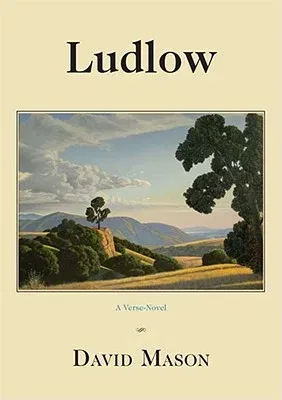David Mason
(Author)LudlowPaperback, 1 April 2010

Qty
1
Turbo
Ships in 2 - 3 days
Only 3 left
Free Delivery
Cash on Delivery
15 Days
Free Returns
Secure Checkout

Print Length
232 pages
Language
English
Publisher
Red Hen Press
Date Published
1 Apr 2010
ISBN-10
1597094722
ISBN-13
9781597094726
Description
Product Details
Author:
Book Format:
Paperback
Country of Origin:
US
Date Published:
1 April 2010
Dimensions:
21.41 x
14.81 x
1.6 cm
Genre:
Feminine
ISBN-10:
1597094722
ISBN-13:
9781597094726
Language:
English
Pages:
232
Publisher:
Weight:
317.51 gm